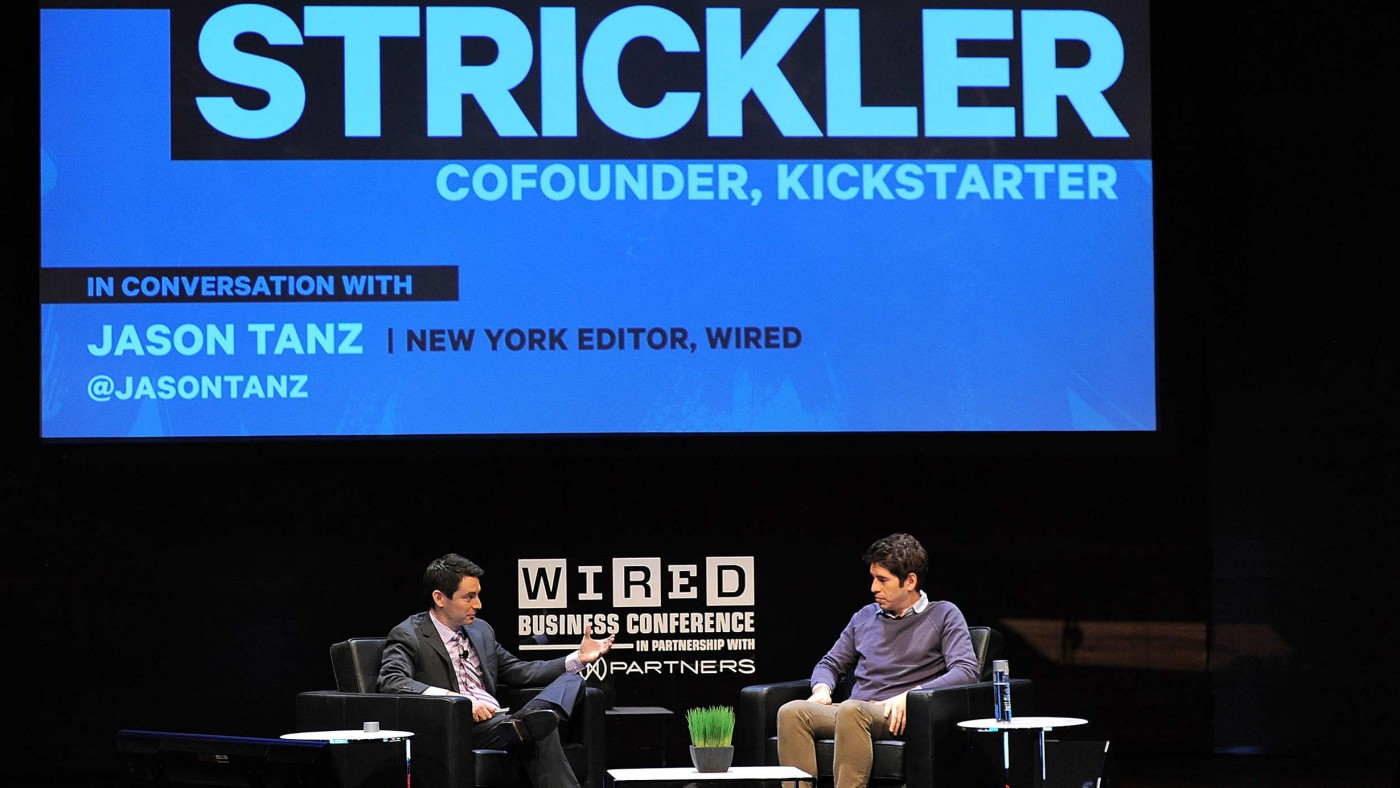The news that crowdfunding site Kickstarter plans to reincorporate as a “Public Benefit Corporation” didn’t mean much to those outside the investment world. Even Kickstarter’s 9,484,198 backers didn’t pay much attention. It’s the projects on Kickstarter that cause hype – like the Exploding Kittens card game or the Grilled Cheesus sandwich press – not the company itself.
So why does the news matter? Well, just look at what Kickstarter founders Charles Adler, Perry Chen and Yancey Strickler have turned down. Had they decided to announce an IPO, they could have raised billions of dollars. Kickstarter, a peer-to-peer funding site where users can choose to invest in whatever projects they like, is essentially the sharing economy blended with social media. And other sharing economy and social media businesses have has huge investment success: Uber has raised $7.4bn in equity funding, Airbnb 2.3bn, Pinterest 1.3bn, and Snapchat 1.2bn. If Kickstarter had gone public, it could easily have skyrocketed to the “unicorn” club of a billion dollar valuation.
Instead, the founders announced the following on Sunday:
Until recently, the idea of a for-profit company pursuing social good at the expense of shareholder value had no clear protection under U.S. corporate law, and certainly no mandate. Companies that believe there are more important goals than maximizing shareholder value have been at odds with the expectation that for-profit companies must exist ultimately for profit above all.
Benefit Corporations are different. Benefit Corporations are for-profit companies that are obligated to consider the impact of their decisions on society, not only shareholders. Radically, positive impact on society becomes part of a Benefit Corporation’s legally defined goals.
The appeal Public Benefit Corporations (which “will harness the power of private enterprise to create public benefit,” according to Delaware Governor Jack Markell) has been growing in recent years. In June, Christian Aid representative and CapX author Joe Ware wrote about the rise of similar “B-Corps”, and noted that “there are now 1,297 B-Corps, in 121 industries, in 41 countries”, including Patagonia and Ben & Jerry’s. This is one of many approaches to the problems for which capitalism is often attacked: externalities, monopolies, workers’ rights, environmental concerns. Kickstarter, with its emphasis on community and collaboration between backers and those hoping to fund projects, has chosen this form of ethical capitalism.
But if Kickstarter has been labelled “altruistic” and the “good guy” , what does that make other tech startups that have gone the traditional route? Uber, the poster child of the sharing economy, is still battling a PR problem – the company and its CEO Travis Kalanick are seen as “brash”, “aggressive”, and “threatening”. Frustration from taxi drivers aside, Uber has come under fire most for its surge pricing model, which saw a woman charged $539 for an 18-mile ride last Halloween.
Two startups, both based on social media technology, both of which connect people willing to pay for products with providers of said products. One is hailed as a hero, the other demonised. But as Jared Meyer at E21 has pointed out, Uber has been hugely beneficial to low-income Americans. Not only does it provide jobs for workers who would otherwise face unemployment, but it has increased taxi availability in areas where traditional cabs refused to go: “Over the course of 2014, the historically low-income [New York] neighborhoods of Jackson Heights, Astoria, Harlem and Washington Heights all saw increases in UberX trips of over 1,200% — that’s more than 12 fold.” Uber helps individuals buy cars and set themselves up as entrepreneurs, as well as bringing the cost of taxi-travel down to affordable levels. And there’s even been a study linking the arrival of Uber with a reduction in incidents of drunk driving.
Nonetheless, providing people with flexible jobs and affordable taxis hasn’t made Uber any more popular. It would seem it’s not enough to offer the public cheaper taxis – while consumers may endorse you with their wallets, it won’t stop the bad press. Clearly the desire for a form of ethical capitalism is spreading, a form where businesses donate 5% of profits to charitable causes and adopt strict environmental guidelines, as Kickstarter has.
But we should keep in mind that long before its reincorporation, Kickstarter was already improving lives, by providing startups with an alternative funding model, and consumers with products that would otherwise never materialise. It didn’t need special Benefit status to be beneficial. Neither does Uber, or Airbnb. It would be absurd to write off all the businesses which make our lives more convenient and interesting just because they haven’t gone the PBC route.
Obviously, Kickstarter and Uber occupy radically different fields, and given that Kickstarter’s goal is to foster creativity, Public Benefit Corporation status may fit in with their mission perfectly. But the new caring and sharing business models that claim to consider “social benefits” don’t have a monopoly on improving lives, and to the recently-employed drivers or the people in areas which suddenly have access to taxis, Uber’s market strategy is probably far more beneficial then Kickstarter’s shiny new label.


